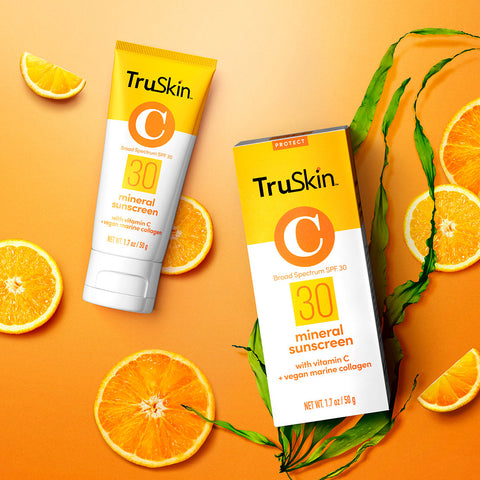
Is Stress Taking Its Toll On Your Skin?
This year has been tough on everyone, so with stress affecting more people than ever we felt it was time to talk about how stress and anxiety affects your skin. And, most importantly, what you can do about it.
Stress: a word that gets thrown around so much in today’s world. But true stress is so much more than worrying fleetingly about which photo to post on Instagram or what to put on your oatmeal (banana and maple syrup, btw, no contest). According to the Mental Health Foundation, stress is defined as: ‘the degree to which you feel overwhelmed or unable to cope as a result of pressures that are unmanageable.’
There’s no doubt about it, 2020 has been a particularly stressful year across the entire world. Research carried out by the American Psychological Association shows that around 70 percent of employed adults in the US say work is a significant source of stress right now and 67 percent of all Americans feel that Covid-19 and the government’s response to it is currently causing them to feel more stressed than normal.
That’s a lot of stress for one nation to deal with. So, if this is a feeling that’s ringing true for you – and your skin and health are suffering because of it – it’s definitely time to take control of your emotional wellbeing.
But first let’s take a step back to see how stress affects your body, and consequently your skin.
What Happens To Your Body When You’re Stressed
Stress is all about hormones. When you feel stressed about something, your brain decides to send in the big guns to help prepare your body to go into fight or flight mode. Your nervous system releases a whole bunch of hormones into the bloodstream (think cortisol and adrenaline) which causes your heart to pump faster, your breath to quicken and your muscles to tense and get ready for action.
In all fairness, this isn’t a bad thing but a pretty smart way for your body to prepare itself to react quickly to a threat or emergency. Think about the time you crushed that scary job interview – that was your body being motivated and driven by the adrenaline caused by stress.
The problem, however, is that when these stress hormones go into constant overdrive your body never has a chance to relax and go back to normal. This plays havoc with your emotions, affects your sleep and can result in any number of physical implications including headaches and nausea. In serious cases, chronic stress can cause major negative impacts to your health including problems with your digestion, immune system, reproduction and even increase your risk of having a stroke or heart attack.
Stress can also impact the health of your skin.
Stress And Your Skin
Studies shows that stress sees skin as one of its main targets. Skin conditions like psoriasis, acne, rosacea and eczema can be seriously exacerbated by emotional turmoil, and even a small amount of stress can cause you to drink more alcohol, eat more processed foods and generally stop looking after yourself as well as you should. It also plays havoc with your sleep patterns and we don’t need to remind you that lack of sleep is seriously bad news for your skin (hello dark under eye circles, fine lines and sagging skin).
Those stress hormones don’t help, either. Higher levels of cortisol have been shown to increase the skin’s production of sebum which can result in blocked pores and make you more prone to pimples and blackheads. Cortisol also encourages inflammation, depletes collagen and elastin, and interferes with your skin’s healing process which is disastrous for anyone with sensitive, troubled or aging skin. Can that, it’s disastrous for everyone.
If you have dry skin and think stress can’t affect the dryness of your complexion, think again. Research suggests that stress can also impair your skin’s protective barrier which reduces its ability to hold in moisture to keep it supple, soft, hydrated and youthful-looking.
All in all, stress and its evil side-kick cortisol can take a hike.
But that's often easier said than done, so if you’re feeling completely overwhelmed by stress, please get help from a qualified mental health professional. If it’s manageable, however, here are a few simple ways to destress at home.
How To Deal With Stressed Out Skin
There are many ways to reduce your levels of cortisol and give your skin the best chance of being stress-free.
Below are five of the most tried and trusted tricks for destressing your life… and of course your skin.
1. Know Your Stress Triggers
According to non-profit mental health and wellness website, HelpGuide, one of the most important ways to manage stress is to know what causes it and how you react to it.
“Look closely at your habits, attitude and excuses. Until you accept responsibility for the role you play in creating or maintaining anxiety, your stress levels will remain outside your control,” recommend HelpGuide experts.
A great way to do this is to keep a stress journal, then every time you feel stressed, make a note of what caused it, how you felt, how you reacted and what you did to make yourself feel better. Doing this will help you notice themes or patterns that you may be able to change or at least control.
2. Up Your Sleep Game
When it comes to decreasing stress, raising positivity and replenishing your mind, body and skin, there are few things as effective as a good night’s sleep. The National Sleep Foundation recommends seven to nine hours every night, yet the truth is that most of us get far less than that. More like six or seven on a good day.
But why is sleep so important for controlling stress? Well, remember that stress hormone we talked about earlier? Cortisol, yes, that’s the one. Well, your levels of cortisol drop dramatically when you’re asleep, allowing your whole body to heal and repair itself. Reduce your hours of zzzs and cortisol levels remain high, therefore interfering with this period of restoration. This spells disaster for your skin because continually high levels of cortisol encourage inflammation, accelerate the aging process and exacerbate conditions such as psoriasis, eczema, acne and rosacea.
For a better night’s sleep, try to go to bed at the same time every night and ensure your bedroom is dark and not too warm. Reduce your smartphone time for a few hours before bed, limit caffeine in the afternoons and evenings, never watch TV in bed and don’t eat too late.
3. Evaluate Your Skincare Routine
Our number one rule for helping stressed out skin with skincare? Don’t overload your face with a bunch of new actives that your skin might not be used to. This will just make issues doubly worse, because if your skin’s natural protective barrier has been compromised, potent ingredients will be much more easily absorbed which sounds great in theory, but can do more harm than good. Instead, stick with what you know while upping your moisturizing game to combat itching and dryness. Products containing emollients and humectants such as jojoba oil and hyaluronic acid are excellent in times of need.
If your skin is suffering from specific stress-induced problems like redness and irritation, you could also try introducing soothing or anti-inflammatory ingredients into your skincare routine. We love the likes of aloe vera, green tea, rose water and niacinamide which are all super gentle on your skin.
Concerned about more serious issues like eczema, psoriasis and the like? Then always seek professional help for a diagnosis and treatment plan.
4. Eat Well
You really are what you eat, people, and a healthy diet goes a long way for helping you lead a stress-free life.
Drink plenty of water – dehydration can increase your levels of cortisol – and reduce caffeine, sugar and refined carbs as these are all major stressors for your body. Swap them out for antioxidant-rich foods like leafy green veggies, beetroot, nuts, carrots, whole grains and kale. Bananas and avocado are also great because they’re packed with potassium which helps keep your blood pressure down. Meanwhile, oily fish like salmon and tuna are pretty awesome for managing adrenaline levels.
Going back to sugar for one minute, let’s talk chocolate. Hells yeah. While cheap chocolate that’s low in cacao and high in sugar might not be ideal (although often just what you crave), dark chocolate has been proven to lower levels of stress hormones while releasing serotonin which stabilizes your mood and gives you a general feeling of happiness. Just make sure to choose chocolate that contains at least 70 percent cacao.
5. Finally, Take Some Time Out
Setting some time aside in your daily schedule for fun, relaxation and exercise is a very effective way to reduce stress and handle whatever life throws at you. Whether this means going for a bike ride, enjoying a soak in the bath or doing something as simple as reading a book for 15 minutes, whatever it is you enjoy, do it. No excuses. Just remember: what works for you might not work for the next person. Love golf? Then a round of 18 in the great outdoors is an awesome way to clear your mind and give your brain and body something to focus on. But if you literally can’t bear it, then it’s probably better to give golf a wide berth.
Also, learn how to breathe properly. This may sound stupid, but poor breathing means your body won’t take in enough fresh oxygenated blood and your health, skin and wellbeing will suffer because of it. Meditation is super effective for relaxing your body and mind while making yourself aware of your breathing. But we get it, meditation is not for everyone. However, even some simple breathing exercises will lower your stress levels almost immediately as slow, deep breaths naturally decrease your heart rate and lower your blood pressure.
Check out some breathing exercises, courtesy of academic medical center the Mayo Clinic here.









